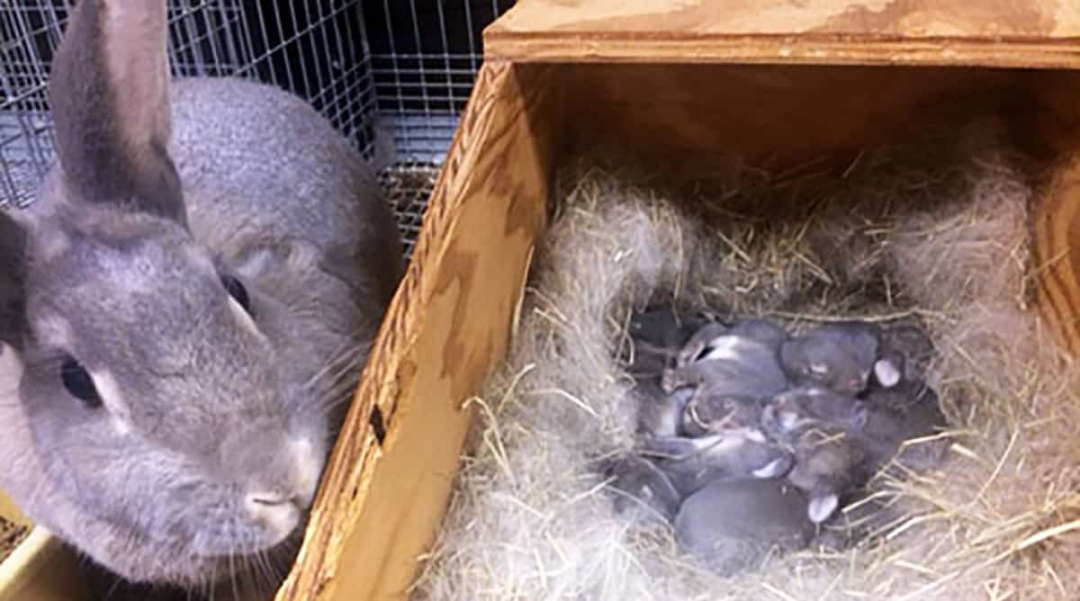How Long Does a Rabbit Pregnancy Last?
Rabbit pregnancies can be an exciting and eagerly anticipated time for rabbit breeders and pet owners alike. However, it is essential to understand the duration of a rabbit’s gestation period to ensure the health and well-being of both the mother and her offspring. In this article, we will discuss how long a rabbit pregnancy lasts, the various stages of pregnancy, and provide answers to frequently asked questions related to rabbit pregnancies.

Duration of a Rabbit Pregnancy
A rabbit’s pregnancy, also known as gestation, typically lasts for about 31 to 33 days. However, this duration can vary slightly depending on factors such as the breed, individual rabbit, and environmental conditions. It is essential to monitor the rabbit closely and be prepared for the possibility of early or delayed births.
Stages of Rabbit Pregnancy
During the gestation period, a rabbit goes through various stages, each with its unique characteristics. Let’s explore these stages in detail:
1. Mating and Fertilization
The first stage of a rabbit’s pregnancy begins with mating. The female rabbit, also known as a doe, is receptive to mating every few weeks. Once successfully mated, the fertilized eggs travel to the uterus, where they implant and develop.
2. Nesting Preparation
Around 25 to 28 days into the pregnancy, the doe will start preparing a nest for her upcoming litter. This preparation involves gathering soft materials such as straw, hay, or fur to create a warm and comfortable environment for the kits (baby rabbits).
3. Labor and Delivery
Labor and delivery occur during the final days of the pregnancy, usually between days 29 and 33. The doe may display restlessness, digging behavior, and pulling fur from her belly to line the nest. It is crucial to provide a quiet and stress-free environment during this time to ensure a smooth birthing process.
4. Care of the Newborns
Once the kits are born, the doe will nurse them for approximately 4 to 6 weeks. It is important to provide a diet rich in nutrients to the mother rabbit during this period to support milk production and ensure the health of the babies.
Frequently Asked Questions (FAQs)
1. Can a rabbit get pregnant immediately after giving birth?
Unlike some animals, rabbits can potentially get pregnant immediately after giving birth. This phenomenon is called postpartum estrus. However, it is recommended to allow the mother rabbit some time to recover before breeding her again, as back-to-back pregnancies can be physically demanding.
2. How can I determine if my rabbit is pregnant?
It can be challenging to determine if a rabbit is pregnant during the early stages. However, some signs may indicate pregnancy, such as weight gain, changes in behavior, and visible mammary gland development. Consulting a veterinarian is the most reliable way to confirm pregnancy.
3. Do rabbits have multiple litters in one pregnancy?
No, rabbits typically have one litter per pregnancy. The average litter size can vary depending on the breed, but it generally ranges between 4 to 12 kits.
4. What should I do if my rabbit has complications during labor?
If you notice any signs of distress or complications during the birthing process, it is crucial to seek immediate veterinary assistance. A veterinarian will be able to assess the situation, provide necessary interventions, and ensure the health and safety of both the mother and her offspring.
Understanding the duration and stages of a rabbit pregnancy is essential for anyone involved in rabbit breeding or owning a pregnant rabbit. By providing the necessary care and monitoring, you can contribute to a healthy and successful pregnancy for your rabbit. Remember to consult a veterinarian for any concerns or questions regarding your rabbit’s pregnancy to ensure the best outcomes.
Related Articles…
Copyright Notice:
All images featured on this site are sourced from the internet, copyrights belong to respective owners. Should you own any image and require it to be removed, please contact us.